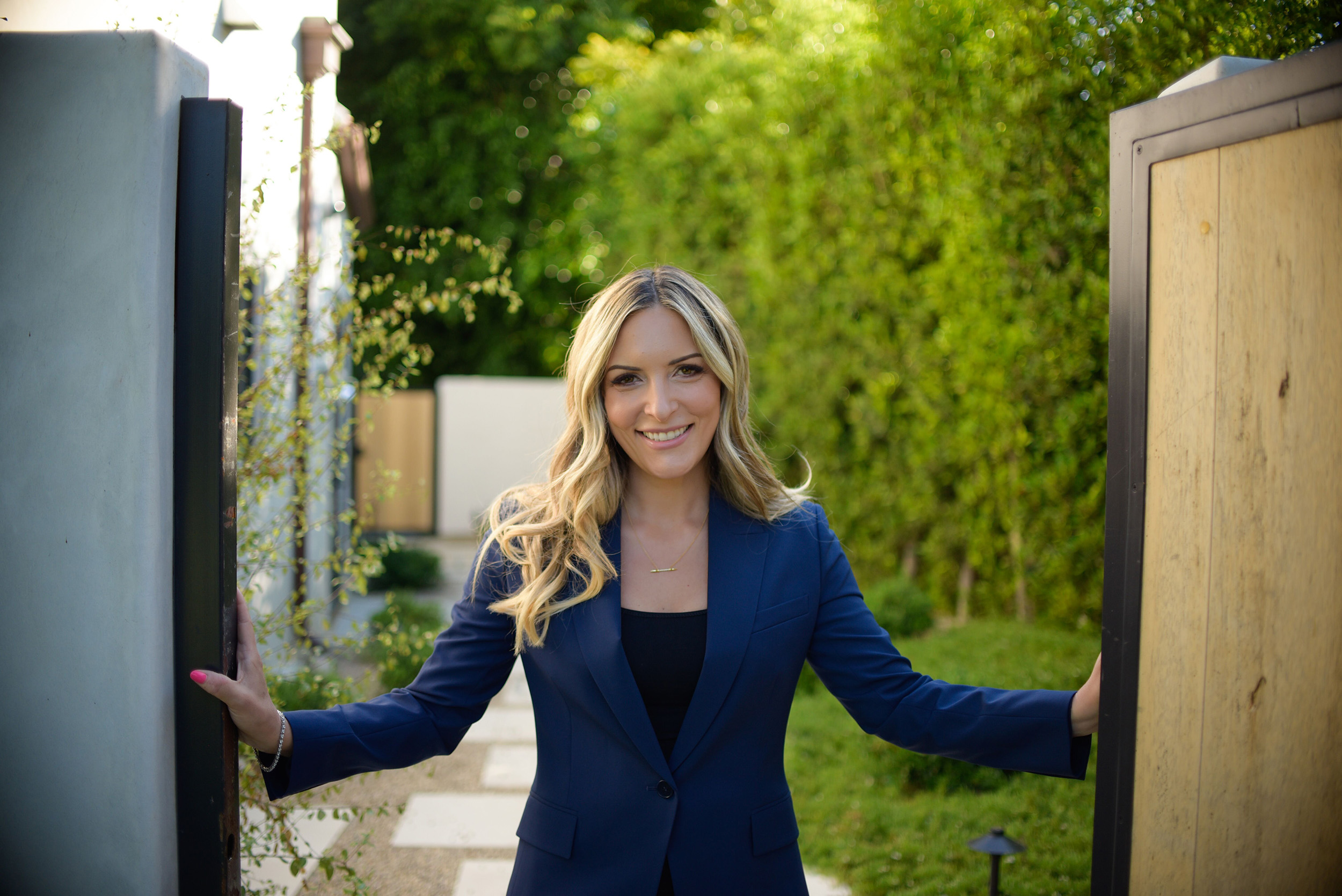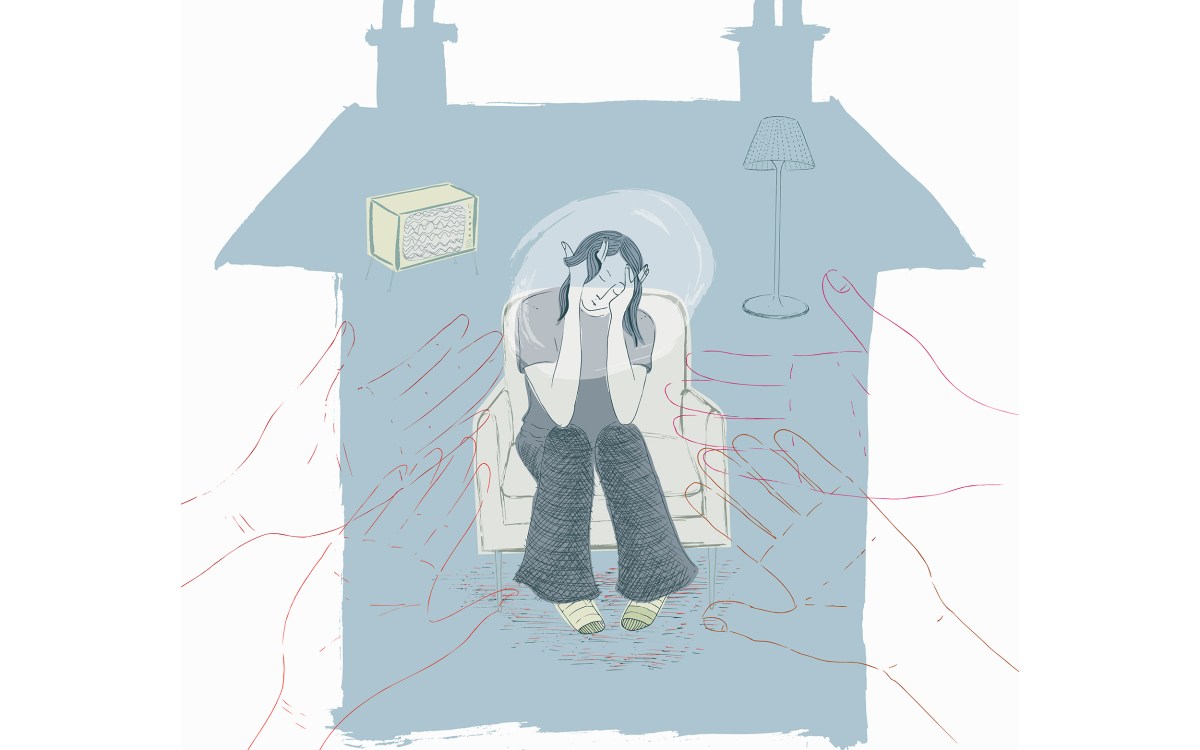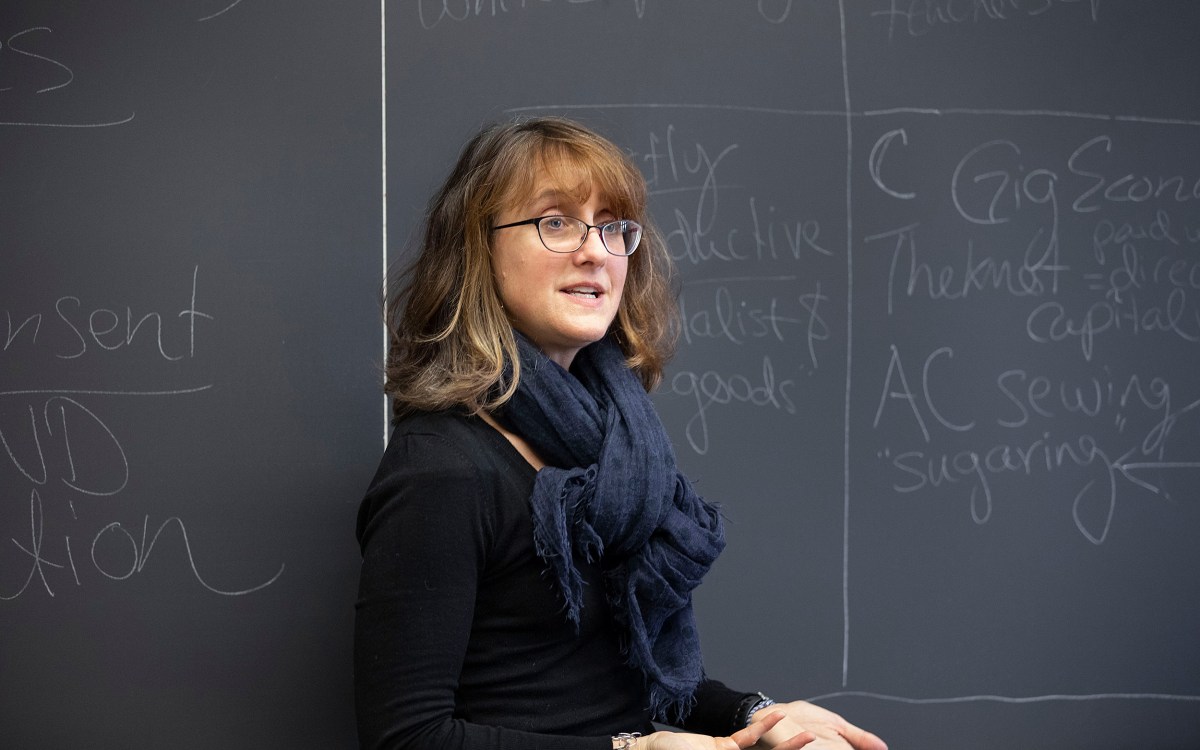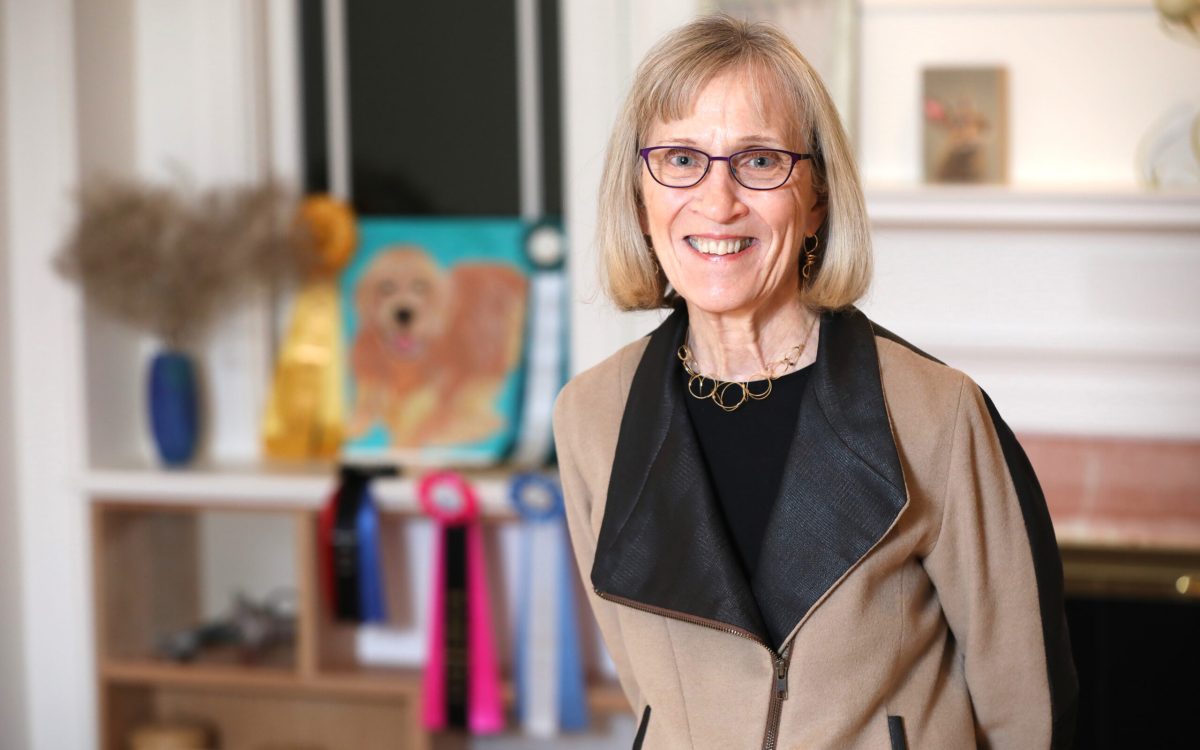Dad’s clueless, Mom’s fried. Maybe there’s a better way.
Law School grad who wrote ‘Fair Play’ explains perception gap highlighted by new Pew study

Illustration by Louise Morgan/Ikon Images
Moms and dads still struggle to get on the same page when it comes to household work, according to findings published in January by Pew Research Center. Moms more than dads say that parenting is harder than they thought it would be. When asked about division of labor, moms say they do more than their partner — and they’re right. Women carry more of the workload at home, a burden that only increased during the pandemic. But when dads were asked the same question, they said they shared the work equally. Why the disconnect?
One major factor is the invisible work, physical and mental, done by women, says Eve Rodsky, author of “Fair Play: A Game-Changing Solution for When You Have Too Much to Do (and More Life to Live).” It’s an idea shaped by research but also personal experience. A 2002 graduate of Harvard Law School, Rodsky envisioned a professional life of endless ambition: smashing the glass ceiling, solving all the world’s problems. Ten years later, she felt like the only things she was smashing were peas for her toddler. She might have just swallowed her frustration, but instead she worked to become an expert in the gendered division of labor. We asked her about inequity in the home and what couples can do to change it. The interview has been edited for clarity and length.
Q&A
Eve Rodsky
GAZETTE: I’m curious if you were surprised by the Pew findings, especially in how men and women have such different views of how they share parenting responsibilities.
RODSKY: I definitely wasn’t surprised at all. With studies around time use — and how we divide up childcare and housework in our country — the questions have been flawed. We know that men overreport what they do, and women underreport what they do. We’re not asking the right questions, because if you ask who does the childcare or who does the groceries, of course couples will answer “both.” But what you’re not going to pick up is that the invisible work, the conception and planning behind each of these tasks, is done by women.
GAZETTE: Tell me more about invisible work.
RODSKY: This is all about the conception and planning of a task. For example, noticing that your second son, Johnny, only likes yellow mustard with his protein (conception) and then keeping track of when you’re going to get that mustard when it runs low (planning). It’s much harder than just executing a task that someone else tells you to do, like buying the mustard at the grocery store. Then there’s something called “emotional labor”: things like middle-of-the-night comfort for your child or managing your in-laws. “Invisible work” was coined in 1986 by a sociologist named Arlene Kaplan Daniels. I love that term because she argued that this is the work that has to stay invisible. If you valued an act like holding a child’s hand in the doctor’s office as much as you valued an hour in the boardroom, then a capitalist, patriarchal society would collapse.

“Many couples told me they don’t communicate about home life because it’s too triggering. But the truth is that you are communicating, in some way, already.”
Photo by Avia Rosen, courtesy of Hello Sunshine
GAZETTE: Many fathers report that they’re sharing the load equally with their partner, whereas mothers accurately say they do more. Why are perceptions so different?
RODSKY: Because men and society focus on execution, whereas conception and planning are truly invisible. For example, my dearly loved husband, though he legitimately thought he was handling extracurricular sports by bringing our kids to the Little League field — he wasn’t. What he didn’t understand was that there were six hours of preparation just to get them there, like managing an 85-person carpool chain, coordinating three different practices, copying the kids’ birth certificates, signing consent forms, making group snacks. It’s very similar to a couple I spoke to in “Fair Play,” who told me they both cook dinner. But then the woman said that her husband asks, “What do you want me to cook?” and she has to choose the recipe, have all the groceries in the refrigerator, and remind him when to start cooking. Essentially, she was still doing all the conception and planning. In my research, one of the No. 1 things women said was that they felt that they had a helper and not a partner. And a lot of men told me that the thing they hated about home life was that they couldn’t get anything right, and they had to wait until their partner told them what to do. That’s just a terrible dynamic.
GAZETTE: As couples are trying to navigate this imbalance, I imagine some of the conversations might trigger defensiveness and frustration. Do you have any tips on how to navigate that?
RODSKY: We have to start treating our home as our most important organization, where we value accountability and trust. Because I’ve been working in organizational management, behavior design, law, and governance for 15 years, I have a secret formula: boundaries, systems, and communication. My advice is to tackle whatever of those things feels easiest for you. For example, the boundaries issue: Ask yourself, “Do I have as much time-choice over how I use my day as my partner?” Sit down and talk about how you both value each other’s time, and work together to create a more efficient home. If systems are easier — that’s where a lot of coaches and military spouses like to start because this is something they’re used to — start thinking about ownership. What tasks can each partner own in totality, from conception to planning to execution? As opposed to decision fatigue, where no one knows who’s cooking dinner tomorrow night or who’s taking the dog out or who’s in charge of dishes. Then the third piece is communication. Many couples told me they don’t communicate about home life because it’s too triggering. But the truth is that you are communicating, in some way, already. I spoke to a woman who said she doesn’t communicate about domestic life. And then 20 minutes later, she told me that every time her partner forgets to put the laundry in the dryer, she dumps it on his pillow. That’s absolutely communicating. What I’m asking for is a shift, not a start. These are really hard conversations to have. But when you start them intentionally, then you can move to a better communication model.
GAZETTE: Having worked in this space, what gives you hope that we might actually crack the problem at some point?
RODSKY: The fact that I’m seeing Google searches for “invisible work” and “mental load’ in a way that I never saw in 2011. Or that I’m seeing coverage, like in the Wall Street Journal recently, that showed that professional men are cutting back on their work hours. It’s the first time, I believe, where people are starting to understand that unpaid labor is labor. I feel like we’re at a tipping point where people are realizing that these tasks at home have value.








